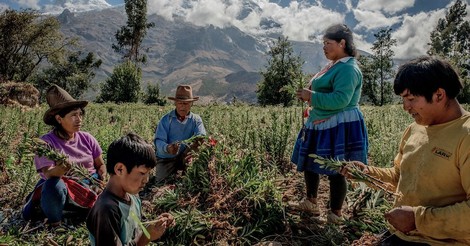Your podcast discovery platform
Curious minds select the most fascinating podcasts from around the world. Discover hand-piqd audio recommendations on your favorite topics.

piqer for: Climate and Environment Global finds Globalization and politics
I'm a freelance journalist, currently based in Madrid. I used to be a News Producer at CNBC in London before, but I thought a little bit more sun might do me good. Now I write for several news organizations, covering a range of topics, from Spanish politics and human rights for Deutsche Welle to climate change for La Marea.
The Expiring Wealth Of The Peruvian Desert
One of the most obvious effects of climate change is the melting of ice. Even a small warming can tip icecaps, permafrost and glaciers over a point of no return. This can have several and grave implications, including waking up prehistoric diseases, raising seas and a possible collapse of the gulf stream. But the disappearance of ice will also affect human economies and threatens with the collapse of whole communities that rely on that water to survive.
This is what will happen in the Peruvian desert. With a twist. Before the disaster, climate change has spread wealth across the sandy dunes. Inhabitants live a golden era of agriculture and new settlers come from all over the country to share the bounty. The reason: The mountain glaciers are melting away, and their water irrigates the otherwise arid land.
"Yet the boon is temporary. The flow of water is already declining as the glacier vanishes, and scientists estimate that by 2050 much of the icecap will be gone."
The Peruvian irrigation infrastructure, which cost hundreds of millions of dollars and is one of the most successful in the country, may be useless in a few decades. This is a story that plays out in other countries facing desertification, but here in Peru, the financial risks of climate change also mean a matter of life and death.
“If the water disappears, we’d have to go back to how it was before,” said Miguel Beltrán, a 62-year-old farmer who worries what will happen when water levels fall. “The land was empty and people went hungry.”
Rising temperatures do not only bring more productive agriculture, but also pests. And when the water is gone, the pests will stay.
The population, which has grown exponentially in the last few decades, will also stay, with nowhere else to go. Everything points to a humanitarian crisis, aggravated by the idea that these are blessed lands.
“In years to come, we will be fighting over water.”
